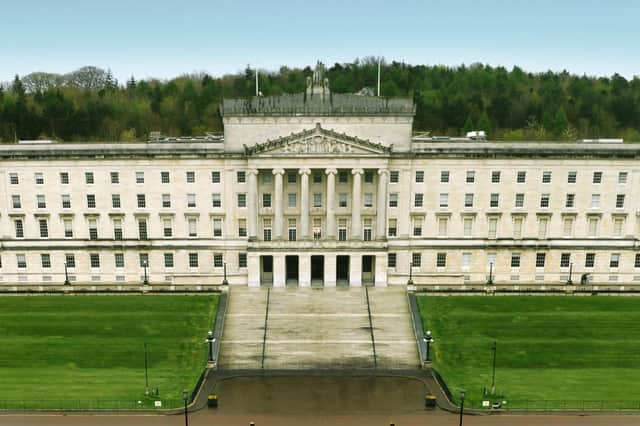Doug Beattie: Being in the arena is always better than being on the outside


He lays out his concerns clearly, each area of concern outlined succinctly while each area of opportunity is glossed over.
When you are totally opposed to something, that makes absolute sense. Yet, with all those musings, there is a fundamental omission – what next?
Advertisement
Hide AdAdvertisement
Hide AdWhat is plan B or C or any other letter of the alphabet, because right now, there seems to be a lack of logical, strategic thinking apart from a growing protest movement.
If bringing Stormont down was the right thing to do, then there would be a logical outcome to that approach.
That outcome seems to be the Windsor Framework, including the Stormont Brake. If you helped negotiate these, as the DUP did, then voted against them, then what next?
The reality is that bringing Stormont down and keeping it down was always the nuclear option, and it has not worked.
Advertisement
Hide AdAdvertisement
Hide AdWe can discuss mutual enforcement all we want, but with the implementation of the Windsor Framework taking place in October, we are running out of time to change it.
As I have written previously, change will not come about due to protest; it will only come about if it is in the strategic interests of the United Kingdom’s future prosperity.
Already we have seen the government outline its continued recognition and use of the CE markings alongside UKCA standards marker.
This now means that goods throughout the whole of the United Kingdom can continue to conform to European health, safety and environmental protection standards, meaning they can be traded freely within the European Economic Area regardless of country of origin.
Advertisement
Hide AdAdvertisement
Hide AdFor Brexit purists, this is not what they wanted, but for Northern Ireland, it means that divergence between the United Kingdom and European Union is greatly reduced, and that is a positive for Northern Ireland businesses.
Returning to the point about the failings of the Windsor Framework and the – ‘what is the plan B’ question. Politics is about the art of persuasion, not the art of protest.
In 2024, Stormont will have a vote on the continuation of articles 5-10 of the Windsor Framework; if there is no Stormont, then there will be no vote, and we will continue on as we are.
With a devolved government, we have a chance to make the case for change.
Advertisement
Hide AdAdvertisement
Hide AdFast forward to 2025, and the Trade and Cooperation Agreement between the United Kingdom and the European Union is up for review.
Yet again, if we have our devolved government up and running, we can make the case for change. If we do not have an Executive, we will rely on others, whose interests do not lie in Northern Ireland, to make decisions on our behalf.
As a unionist who lives in Northern Ireland, I want to fight politically for our country, and I simply cannot allow this part of the Kingdom to be regarded as failing all the other parts. Our mutual interests lie in making Northern Ireland work.
Disagreeing is not attacking; pointing out problems is pointless if you do not offer workable solutions.
Advertisement
Hide AdAdvertisement
Hide AdProtest is only workable if it has an achievable aim, and being in the arena is always better than being outside of it, complaining your voice is not being heard. All very simple.
Doug Beattie is leader of the Ulster Unionist Party